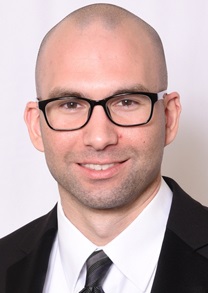
An award-winning filmmaker, a professor, a juris doctor, a lawyer. Adam Crepelle’s academic career has been as impactful as it is extensive. Crepelle, an assistant professor at Loyola University Chicago School of Law, holds a master’s degree in public policy and a master’s of law in indigenous peoples law and policy, and a scholar the Institute of Humane Studies is proud to support. While not the most traditional academic route, Crepelle credits his extensive background as one of the crucial components that has lended to doing his best work and creating a lasting impact.
“My track was definitely a little bit different,” Crepelle remarked.
From a small town in Louisiana, Crepelle envisioned a future where he just practiced law but when he began his higher education towards that goal, the BP Oil spill hit southern Louisiana, and Crepelle was inspired to do more.
“At that time it seemed like everybody in Louisiana was getting money from BP for settlements except for the United Houma Nation, (an indigenous community in Louisiana) the very people that were spilled on and arguably impacted most directly,” Crepelle said. “This struck me as absurd and as a first-year law student, you tend to assume your professors know everything, but I quickly discovered that none of my professors knew anything about Indian Law and, it seemed like no one else in Louisiana did either.”
With a connection to his community and a dire need, Crepelle took it upon himself to specialize in this field so that his research could be a beacon of impact and change.
Today, Crepelle is a citizen of the United Houma Nation and a serving judge on the Pascua Yaqui Tribe’s Court of Appeals. He is passionate about promoting economic development and emphasizes the need for economic freedom, private property rights, and the rule of law in Indian Country.
The Institute for Humane Studies is proud to support a diverse range of scholars like Crepelle, who are striving to make a substantial impact in their field. At IHS, we are committed to offering flexible funding to scholars involved in cutting-edge research and collaborative projects that help to advance classical liberal ideas, and Crepelle’s developing research exemplifies the partnership we strive for.
“I tend to take the classical liberal approach to many of the problems that are facing Indian tribes,” Crepelle said.
In 2022, Crepelle received a Graduate Sabbatical grant from IHS which supported him with the opportunity to work on research centered around criminal justice in Indian communities, tribal economic development, and tribal federal recognition.
“Working with the IHS was a great experience. The application process was easy, and the grant was a major help to my academic career.”
– Professor Adam Crepelle
With the assistance from the graduate sabbatical grant, Crepelle completed work on his manuscript for his forthcoming book, “Becoming Nations Again, The Political Economic Liberty in Indian Country.” In his book, he takes a liberty-based approach to American Indian law and policy, exploring the intersection of federal Indian law and classical liberalism, and applies classical liberal principles of law and economics to Indian country issues.
“I hope my research for this book can transform Indian reservations from the most regulated places in the United States into Islands of Liberty,” Crepelle said.
IHS partners with scholars from all backgrounds, and our funding opportunities serve as a valuable resource for supporting a scholar’s pursuit in their academic journey. Discover how you can help us continue to support transformative research like Crepelle’s.